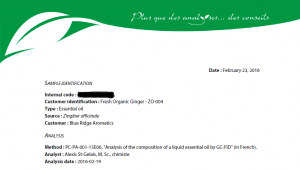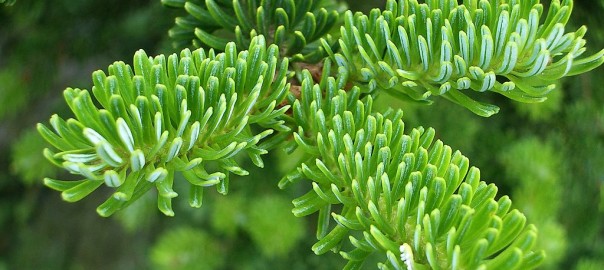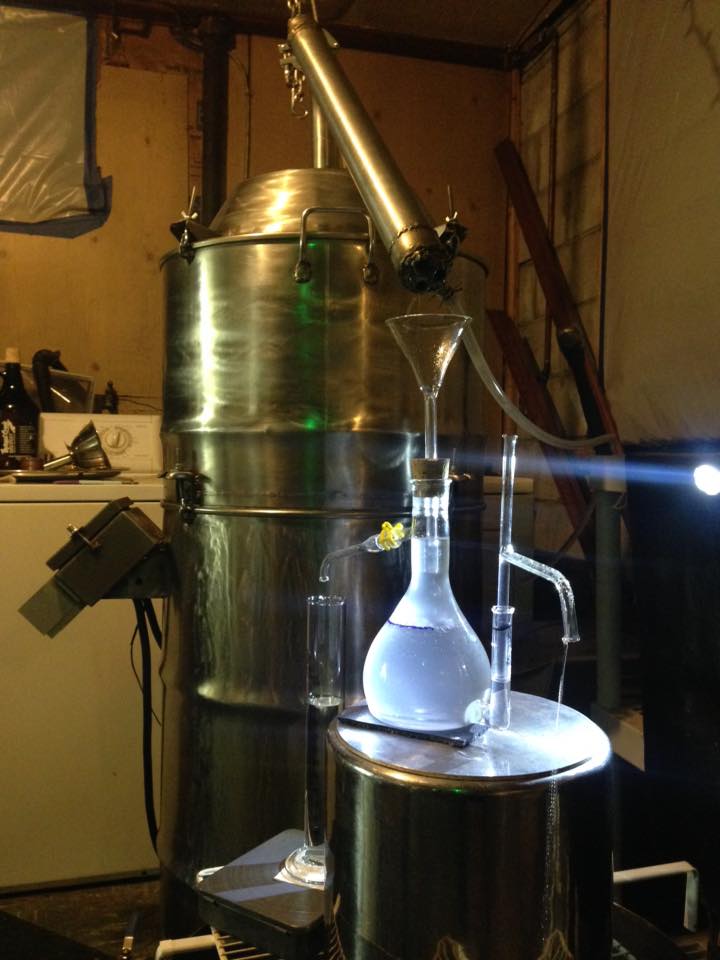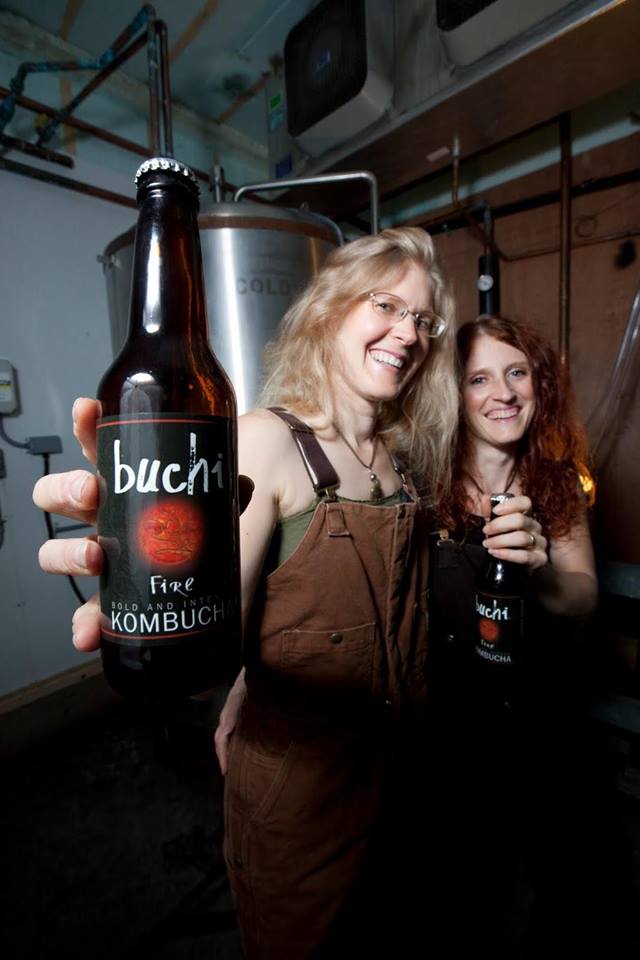Much has happened in Blue Ridge Aromatics land over the last several months! Two extremely fortunate circumstances have helped propel the company to the next level: Christmas trees and Kombucha!
Christmas Trees
Ever wonder what is done with Christmas trees after they are discarded? Some sellers just burn the trimmings they generate from selling trees. When the trash company picks up a discarded tree, it is usually mulched and incorporated with all the other plant material the city collects. This mulch is then sold to consumers or used in city projects and landscapes. Not a terrible use of these discarded Christmas trees.
But we’re partial to distilling, so you can guess what happened next… we collected 24 discarded Fraser Fir Christmas trees from North Asheville neighborhoods and began the process of turning them into essential oil.
Not only did they produce an exceedingly beautiful-smelling oil, unavailable on the market, they produced a lot of it! In all, we processed 475+ lbs of recycled Fraser Firs and produced more than 3 liters of amazing essential oil!
Kombucha
We have the wonderful pleasure of working with Jeanine and Sarah, the founders of Buchi Kombucha, to source two other incredible essential oil feedstocks; Organic Ginger and Organic Turmeric roots. Buchi regularly juices Ginger, and occasionally Turmeric, for use in their all-natural probiotic Kombucha teas. We now have an arrangement with Buchi to convert their “waste” juiced pulp into essential oils!
Whole Peruvian Organic Ginger or Turmeric root is juiced in a commercial juicer by Buchi and then on the same day we purchase the “waste” pulp and steam-distill it. In the true sense of Cradle-to-Cradle design, one process’s waste stream becomes the source material for another process. The result is incredible fresh root essential oils produced for a much lower cost than if we were to buy whole fresh Organic roots. Despite being juiced, Buchi’s Ginger and Turmeric pulps still produce significant essential oil.
If you have never compared essential oils of fresh vs dried Ginger or Turmeric, you are in for a huge surprise! Essential oils from the dried roots of these species have a completely different aroma than the fresh roots; darker, muskier, smelling of brown. However, essential oils made from the fresh roots smell almost exactly like you just sliced open a fresh root. The ginger has a strong citrus top-note followed by that warming spicy aroma you might expect. The Turmeric smells bright, green, and has a hint of fresh cucumber. Both are delicious when 1 drop is added to a beverage! Stock of the Turmeric oil is extremely limited so we have not yet added it to our website products.
GC/MS Testing

As you may have read in our last update, we have finally begun having our essential oils analyzed by a 3rd party laboratory. This is not inexpensive so we had to make some sales before we could have any of our oils analyzed. The first ones we sent off for analysis were our Fraser Fir and Ginger essential oils because they were what we had the most of and were also the oils that many of our customers had questions about.
Mostly, questions about the Fraser Fir oil centered on the fact that growing practices for the Christmas trees are unknown. While we can say with some confidence that the trees were likely grown in NC (the species is native to western NC only and NC is the largest producer of this species), we can not identify which tree came from which farm and therefore cannot know what growing practices were used. We had concerns about pesticide and synthetic fertilizer usage.
Fortunately, the analysis shows no signs that pesticides or synthetic chemicals made it into the final product! A summary of the major chemical constituents of our Fraser Fir oil can be found here.
One of our customers wondered whether our Ginger oil is perhaps missing some chemical constituents when compared to fresh ginger oil from whole roots (rather than juiced). The analysis shows that the ratios of constituents are within +/- 2% of Ginger oil comparables, but Buchi Ginger has a slightly higher ratio of Curcumin. Those who are familiar with essential oil chemistry may recognize Curcumin as the major chemical component of Turmeric oil. This is the chemical that is being researched for its apparent capacity to selectively destroy certain cancer cells. It is also a powerful anti-inflammatory. We are still unsure whether the higher level of Curcumin is a result of the juicing process or due to the root’s Peruvian origin.
Indiegogo Perks
We have (finally) shipped all of our Indiegogo perks and it feels wonderful! We are eternally grateful to our pilot supporters and received overwhelmingly enthusiastic responses about our oils! As an extended thank you to our original supporters, we’re sending you an email with a coupon code for 15% off your next order!
Distilling the Spring
In addition to Ginger and Turmeric, so far this year we have had the pleasure of adding Eastern Red Cedar leaf and Eastern Hemlock essential oil to our stock! These oils are still aging and should be available for purchase by the middle of April. The Hemlock was knocked down in a storm, otherwise we do not harvest this species since it is threatened by the Hemlock Woolly Adelgid.
Looking forward, Blue Ridge Aromatics is excited about 2016! We can’t wait for our next Red Spruce distillation as it is such a special essential oil and we only get access to it once or twice per year. There are many other things in the works for this year and we look forward to sharing these with you as they progress!
Thank you again to all of our supporters and we wish you a fantastic 2016!





If I use the ginger essential oil in my homemade kombucha will it taste similar to the fresh root that I drop in?
Thanks for your question Catherine! The taste will be very similar to fresh root. The oil is very concentrated and 1 drop is more than enough for 1 serving. It also floats on kombucha so will hit your lips and tongue at near full concentration and can burn a little. We recommend diluting in a little coconut or almond oil or even vanilla extract so it more readily mixes with the kombucha. Another idea would be to add a drop or two during the tea-brewing phase (before adding the skoby). Let us know how it goes!